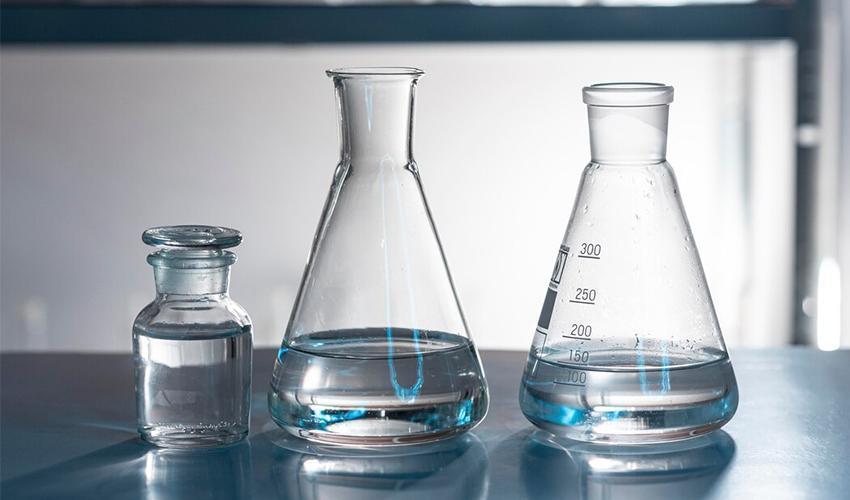Nonionic surfactants are surfactants whose molecules contain ether groups that do not dissociate in aqueous solution as the main hydrophilic group, and their surface activity is reflected by neutral molecules. Nonionic surfactants have high surface activity, good solubilization, washing, antistatic, calcium soap dispersion and other properties, less irritation, and excellent wetting and washing functions. The applicable pH range is wider than that of general ionic surfactants, and it can also be used together with other ionic surfactants. Adding a small amount of nonionic surfactants to ionic surfactants can improve the surface activity of the system. Nonionic surfactants can be divided into polyoxyethylene type, polyol type, alkanolamide type, polyether type, amine oxide type, etc. according to the structure of the hydrophilic group.

The advantages of nonionic surfactants are: excellent wetting and washing functions, strong detergency, good emulsifying, penetrating properties, and foaming, foam stabilization, antistatic, sterilization and other effects; high stability, It is not ionized in aqueous solution, and is not affected by strong electrolytes, strong acids, strong alkalis, and calcium and magnesium ions in hard water; it has good compatibility with other types of surfactants, and is compatible with anionic and cationic surfactants. All are compatible; non-toxic, non-irritating, good biodegradability, is a new generation of "green products".
Most nonionic surfactants are in liquid and slurry state, and their solubility in water decreases with increasing temperature. Nonionic surfactants have good washing, dispersing, emulsifying, foaming, wetting, solubilizing, antistatic, level dyeing, anticorrosion, bactericidal and protective colloid properties. In textile, paper, food, plastic, leather, fur, glass, petroleum, chemical fiber, medicine, pesticide, paint, dye, fertilizer, film, photography, metal processing, mineral processing, building materials, environmental protection, cosmetics, fire protection and agriculture, etc.
Nonionic surfactants are a class of surfactants that were later used in production. However, since its application in the 1930s, it has developed very rapidly and has been widely used, with many properties exceeding that of ionic surfactants. With the development of the petroleum industry, the sources of raw materials are abundant, the process is continuously improved, and the cost is decreasing day by day.
1. Biodegradability and Environmental Impact:
Nonionic surfactants are generally considered environmentally friendly due to their good biodegradability. This characteristic is crucial in modern industries that are increasingly focusing on sustainable and green practices. Their ability to break down into non-toxic byproducts helps in minimizing environmental impact.
2. Temperature Stability:
Nonionic surfactants often exhibit stability over a wide range of temperatures. This property is particularly advantageous in industrial processes where variations in temperature are common. It allows for consistent performance in diverse applications such as laundry detergents, where washing might occur at different temperatures.
3. Compatibility with Sensitive Materials:
Nonionic surfactants are known for their compatibility with sensitive materials. This makes them suitable for use in industries like pharmaceuticals, where compatibility with active ingredients is critical. The non-reactive nature of nonionic surfactants can prevent undesirable interactions with other substances.
4. Improved Emulsification:
Nonionic surfactants are effective emulsifiers, and their use is prevalent in formulations requiring stable emulsions. This property is valuable in industries like food and cosmetics, where emulsions are common in products such as creams, lotions, and food dressings.
5. Enhanced Stability in Hard Water:
The stability of nonionic surfactants in hard water, where calcium and magnesium ions are present, contributes to their effectiveness in various applications. This is particularly important in industries such as agriculture, where water hardness can vary, and in household cleaning products.
6. Versatility in Formulations:
Nonionic surfactants are often chosen for their versatility in formulations. Their compatibility with other types of surfactants, including anionic and cationic surfactants, allows for the creation of complex formulations tailored to specific applications, providing a wide range of performance attributes.
7. Petrochemical Industry Applications:
In addition to the historical development tied to the petroleum industry, nonionic surfactants continue to play a crucial role in various petrochemical processes. Their properties make them suitable for applications such as enhanced oil recovery, where they aid in the extraction of oil from reservoirs.
8. Pharmaceutical and Medical Applications:
Nonionic surfactants find applications in the pharmaceutical and medical fields, especially in drug delivery systems and formulations. Their non-toxic and biocompatible nature makes them suitable for use in products intended for human health.
These additional points highlight the versatility and importance of nonionic surfactants in diverse industries, showcasing their role in contributing to efficient and sustainable processes.